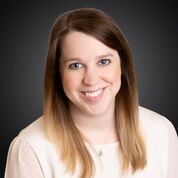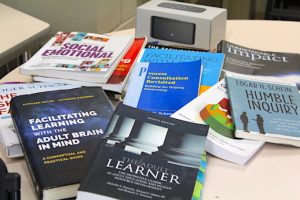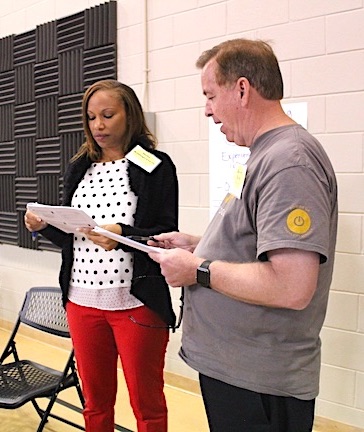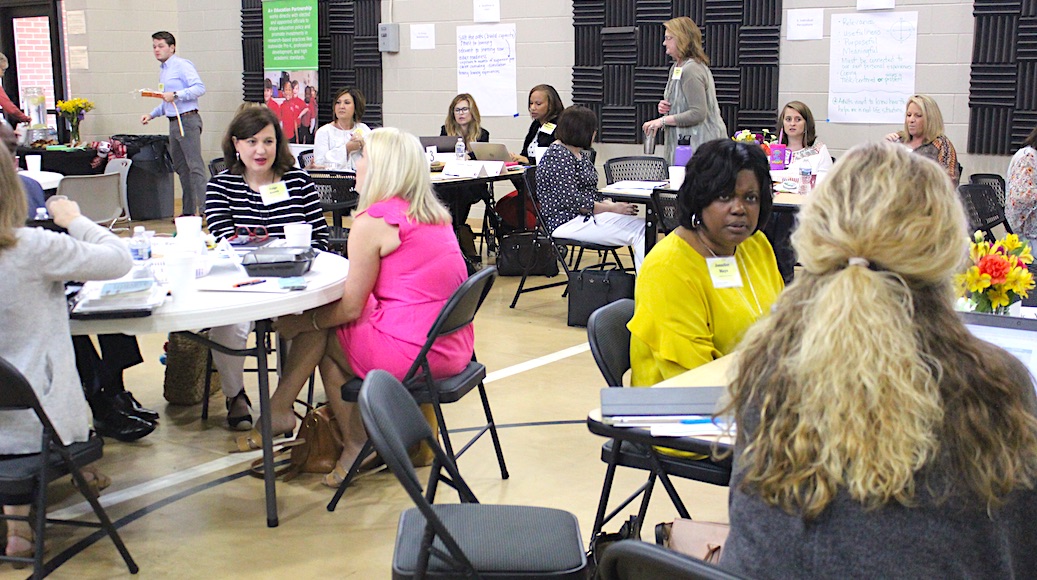 In her blog post last week, Cathy Gassenheimer shared news about the Alabama Best Practice Center’s plans to expand our networks and provide professional learning opportunities to more schools and districts across Alabama.
In her blog post last week, Cathy Gassenheimer shared news about the Alabama Best Practice Center’s plans to expand our networks and provide professional learning opportunities to more schools and districts across Alabama.
Establishing new regional networks and adding more educators to existing networks means we also need to expand our cadre of program facilitators. Enter the ABPC Facilitator Training Institute!
The last week of June, ABPC paired with the University of Alabama Regional Inservice Center to host our first facilitator training experience. Thirty-nine educators from around the state were invited to spend three days with us, diving deep into the methods we believe are most effective in leading learning for adults.
Most of the “trainees” have been involved in ABPC networks for years and have seen the facilitation in action, but on the receiving end. This immersive training took them behind the scenes, where they examined tools and practices for facilitation that have been honed over nearly 20 years with the help of several thousand PLN, KLN, IPN and other network participants.
 Our first hands-on training experience was built in part around this coming year’s Key Leaders Network study book, 10 Mindframes for Visible Learning by John Hattie and Klaus Zierer ,and this year’s Powerful Conversations Network book All Learning is Social and Emotional, by Nancy Frey, Douglas Fisher, and Dominique Smith. We included Edgar Schein’s Humble Inquiry as well.
Our first hands-on training experience was built in part around this coming year’s Key Leaders Network study book, 10 Mindframes for Visible Learning by John Hattie and Klaus Zierer ,and this year’s Powerful Conversations Network book All Learning is Social and Emotional, by Nancy Frey, Douglas Fisher, and Dominique Smith. We included Edgar Schein’s Humble Inquiry as well.
Our first class of facilitators will have opportunities to practice what they’ve learned in their schools and during network events throughout this school year. They’ll receive from feedback from their peers, as well as our veteran facilitators Cathy Gassenheimer, Jackie Walsh, and Pat Johnson, who will provide support through in-person check-ins and on our new blended learning space at the Learning Channel’s Tch Plus platform.
ABPC plans to do more of these facilitator trainings with new classes of participants going forward. Stay tuned! And take a few minutes to read what a few of our participants had to say:
Stoney Beavers, Blount County
 “I especially enjoyed the revised expert group protocol with the moving groups where one individual was not left behind to report out. The new learning was well-designed and led to much reflection, implementation, and practice. I also loved the opportunity to practice facilitation with feedback.’
“I especially enjoyed the revised expert group protocol with the moving groups where one individual was not left behind to report out. The new learning was well-designed and led to much reflection, implementation, and practice. I also loved the opportunity to practice facilitation with feedback.’
“I am personally already reflecting on the Humble Inquiry text and trying to implement it more intentionally in every conversation. It is a great resource, and I have shared it with colleagues. We are also using information from Social and Emotional Learning to better plan for our “soft skills” curriculum for students next year and are tying it into our Culturize book study. “
Susan Arnette, Mobile County
“Every component was valuable, well designed, and purposeful. If I had to choose it would be the depth of cognitive engagement during every training component that was the most valuable aspect of the institute. Many thanks to you for providing quality refreshments and a quality lunch each day. This kept us from being distracted from our learning!”
“My job is to design and facilitate professional learning for educators in the area of STEM for STEMscopes and the Mobile Area Education Foundation. I have already used some of what I’ve learned to design a two-hour webinar to be implemented later this summer. I hope to raise the quality of engagement for the webinar experience with this design. And I am always interested in continuing my association with ABPC as a learner and as a facilitator. “
Gwen Preston, ALSDE
“This training was interactive. It provided opportunities for participants to role-play and engage with other participants.”
Jane Marie Marlin, Vestavia Hills
“I liked learning more about theory/research and the learning models. I enjoyed being in small groups and sharing ideas. These resources can be turned around and used in future learning facilitating in our own districts and schools.”
Lori Snell, Enterprise
“I found the protocols to be useful, but more importantly the way the facilitators discussed the purpose of the protocols deepened my perception. I also liked the way the facilitators modeled facilitation for us. I really appreciated the chunking of the different aspects of facilitation so that it was more specific to various groups.”
Beth Hickman, AMSTI-AU
“I will use what I have learned in pre-planning for my own facilitations to be sure that I am taking into account all of the prior knowledge and experiences that participants bring to learning opportunities. I’ll also be mindful of ways to defuse situations that may become negative or heated. I will be even more mindful of how I use wait time during discussions – especially wait time II. I will use more/new formative assessment strategies to gauge my audience’s needs and change my planned facilitation accordingly. I will practice co-creating and co-facilitating professional learning with others to improve my own practice.”
Jennifer Maye, Jefferson County
“I found it most useful to actively learn from master facilitators who were genuinely interested in helping us better understand adult learning theory and how to effectively facilitate small and whole group learning and discussions.”
Emily Strickland is Program Coordinator for the Alabama Best Practices Center.





0 Comments on "Behind the Scenes at ABPC’s First Facilitator Training Institute"